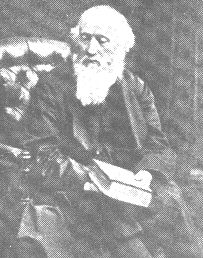William Barnes (William Barnes)

Poet. The son of a farmer, he was born at Bagber, near Sturminster in North Dorset, England. He was educated locally and worked as a clerk until 1823 when he became a schoolmaster. He married in 1827 and began working toward a degree in divinity at Saint John’s College in Cambridge on a part-time basis and became a clergyman in 1848. He is best known for his poetry in the Dorset dialect and which he first contributed to periodicals such as McMillan’s Magazine. A collection of his poems was published in 1844 and titled “Poems of the Rural Life in the Dorset Dialect.” His wife’s death in 1852 affected him deeply and many of his poems describe his love for her. His second book “Hwomely Rhymes” was published in 1858 and a third collection in 1863. A combined edition appeared in 1879 and a translation, “Poems of Rural Life in Common English had already appeared in 1868. He not only was a poet and minister, he was also a philologist. His published philological works include “Philological Grammar” (1854), “Se Gefylsta, an Anglo-Saxon De8lectus” (1849), “Tiw, or a View of Roots” (1862), and a “Glossary of Dorset Dialect” (1863). He also wrote a slim volume on “The Advantages of the Mathematics as a Branch of Education, or Subject of Study which was published in 1834. His great interest in different kinds of knowledge made him write on different subjects such as mathematics, astronomy and geography. His real talent, however, lay in exploiting his poetic gift in the writing of folklore, thus setting the stage for people like Thomas Hardy, his close friend. (bio by: Tom Todd)
Born
- February, 22, 1801
Died
- October, 10, 1886
Cemetery
- St Peter Churchyard
- Dorset
- England

